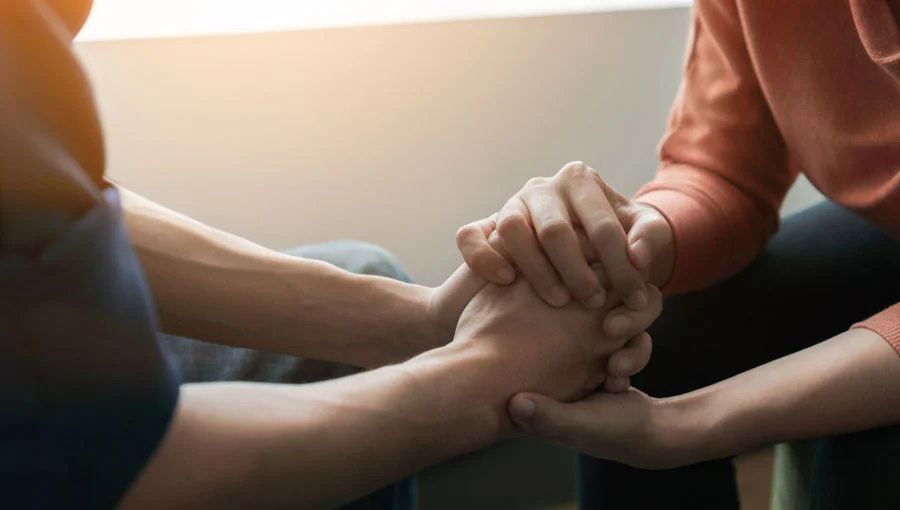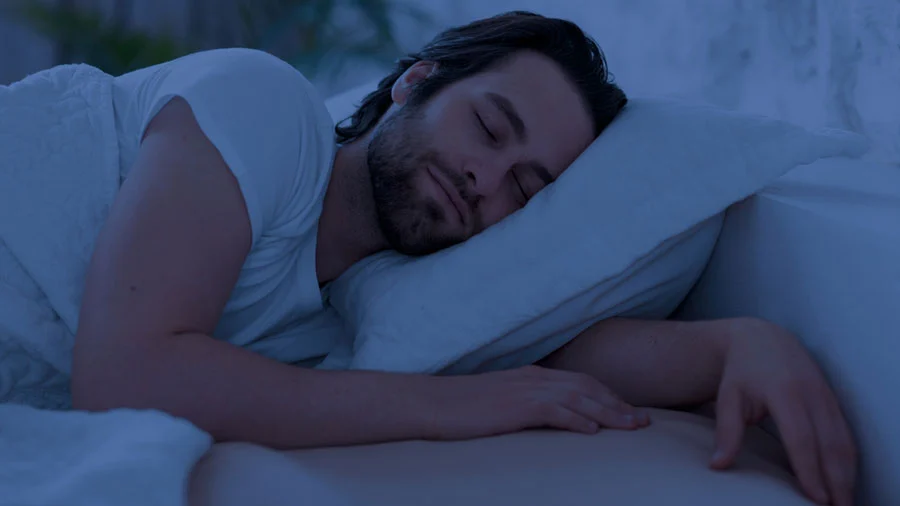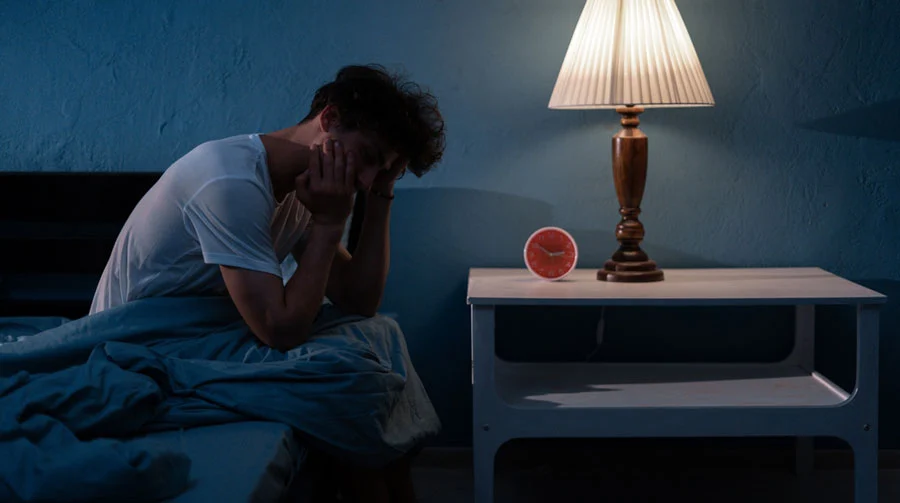Get Help and Overcome Your Relapse History at South Shores
Are you ready for a hard truth? Even after successfully completing a rehab program, you are at risk for chronic relapse. An average of 45%-80% of people relapse following substance abuse treatment- but you shouldn’t let this deter you from seeking treatment.
At chronic relapse treatment centers like South Shores, you’ll find the help you need to prevent the cycle of sobriety and relapse that some people get stuck in after treatment.
At South Shores Detox, we treat addiction on a comprehensive level. By approaching recovery from all angles, you’ll be better prepared to maintain sobriety even in challenging situations. We also offer support all through your recovery journey, from the moment you give us a call.
Keep reading to learn about why people relapse, how to prevent it, and why attending our rehab center at South Shores can make a huge difference for people struggling with this chronic relapsing disease.
What Does a Chronic Relapse Treatment Center Offer?
According to the National Institute on Drug Abuse, addiction is a “chronic relapsing disorder”. It causes physical and chemical changes in the brain. This means even after treatment, it’s possible to slip into old addiction habits.
The overall relapse rate can be scary – but you don’t have to be another statistic, and it is very much possible to repair the damage done to the brain and body by drugs and alcohol. Chronic relapse treatment centers provide support on the road to long-term recovery. However, not all treatment centers use the same efforts and evidence-based practices that you’ll find at South Shores Recovery. It’s important to choose a chronic relapse treatment center that meets your recovery needs.
Is Addiction Considered a Chronic Illness?
You should feel proud of yourself at every stage of your recovery journey. Whether you are two years sober or two days, it is an accomplishment. As the saying goes, “One day at a time”. Unfortunately, no matter how many milestones you have reached, there will be situations that tempt you to use drugs or alcohol.
Addiction is a chronic disease. Like other types of illness, it can flare up at any time. However, relapse prevention plays a big role in preventing chronic relapse.
This is why having ongoing support like Narcotics Anonymous, Alcoholics Anonymous, and other positive role models is so important. During times when you cannot see your therapist, you can lean on people who understand your struggles to get you through those tough periods. They may even be able to offer advice on the situation you are going through.
When Will I Be Safe from Relapsing Again?
The reality is that most people never finish ‘addiction treatment,’ though that does not mean you never leave rehab! You will finish stages of the recovery process and maintaining sobriety gets easier with time.
However, addiction comes with a lifelong risk of chronic relapse. As people in recovery, we can be triggered by stress or certain situations years down the road, even after completing an effective treatment program.
Chronic relapse is most likely in the first 90 days and up to a year after successful addiction treatment. This is the reason many people choose to attend a partial hospitalization program, intensive outpatient program, or transitional sober living home after completing residential treatment.
After this, many manage chronic relapse and the temptation to drink or use drugs by being actively involved in the recovery community. Others only attend meetings when struggling or noticing the signs of chronic relapse. Either strategy is okay, provided you are willing to seek support when you need it.
What Therapies Are Offered at Chronic Relapse Treatment Centers?
Some of the more effective therapies for substance abuse disorders include cognitive behavioral therapy (CBT), dialectical behavioral therapy (DBT), and eye movement desensitization or reprocessing (EMDR).
While specific techniques vary, therapy sessions focus on changing the way that you think, feel, and respond to stress, cravings, and triggers. This gives you more control over those patterns that drive chronic relapsing disease and promote long-term sobriety.
Why Do People Relapse? 7 Common Causes of Chronic Relapse
No one can argue the fact that long-term alcohol abuse or drug addiction changes the circuitry of your brain. It changes your brain’s reward center, stress response, and self-control. Unfortunately, addiction is a lifelong battle.
There are numerous reasons that a person may relapse. Let’s take a closer look at seven of the more common among them.
1) Making the Same Choices After Rehab
Long-term addiction takes control of your life. Often, people struggling with substance use avoid friends and family because they cannot be drunk or high around them. In turn, they seek out different social circles, often with people who share similar interests.
If you return to these same social circles that engaged in past drug use, you’re likely to abuse substances post-treatment. Instead, form healthy relationships with people who can enjoy themselves without being under the influence. Try making plans with friends or family you may have isolated from during addiction or reach out to your support groups about finding a sponsor or other form of mentor, if the 12 step model is not your cup of tea.
2) Not Having Enough Support
Some people are strong enough to remain sober on their own, but many people who go it alone fail. Support is important in recovery. After all, the recovery process is not easy.
It’s important to follow through with aftercare programs, attend individual and group therapy, and foster healthy, supportive relationships. Reaching out to these groups is an important part of relapse prevention.
3) Lacking a Desire to Stay Sober (Staying Motivated)
Staying sober is more than just completing an addiction treatment program and attending support groups. You’ll need to commit to positive lifestyle changes outside of chronic relapse treatment at a drug rehab.
This includes improved self-care habits, developing healthy coping mechanisms, better health and nutrition habits, and being aware of situations that may trigger chronic relapses. This takes a lot of work and not everyone is ready for the commitment – but you shouldn’t let that deter you from trying.
4) Failing to Commit to Self-Care
Getting adequate sleep, drinking enough water, meeting your body’s nutritional plans, and staying physically active are common post-treatment goals. Those who struggle with chronic relapsing disease often forget about these things as they chase drugs or alcohol.
By committing to yourself again, you improve your quality of life and provide your body with the support it needs to go through detox and overcome addiction.
5) Being Unaware of Coping Skills or Triggers
One of the best ways to prevent chronic relapsing disease is to have an arsenal of coping mechanisms ready when you are at risk of relapse. This ensures that if one coping skill does not have the effects you’d like, there are options other than repeating substance use. Some effective coping mechanisms to manage triggers include:
- Distracting yourself with an activity
- Find a non-destructive, physical activity to handle emotions and cravings
- Talk to someone about your feelings or journal
- Practice self-care habits like meditation or skincare
- Reach out to a support group or sponsor
- Using skills used in therapy to identify why you are triggered and a better response
- Take time to reflect on your progress in chronic relapse recovery
If one of these strategies does not work, move on to another. It can be helpful to keep a list of coping skills like these handy for those times when you are at risk of chronic relapse and cannot think clearly.
6) Failing to Address Mental Health Concerns
Failing to address mental health issues leaves you at high risk of chronic relapse disease. It’s hard to maintain sobriety even after an effective addiction treatment program if you do not address the anxiety, depression, mood disorders, unresolved trauma, or other underlying issues that tempted you to use in the first place.
Dual-diagnosis rehab programs will address poor mental health and substance use disorders, giving you the best chance of sustained recovery.
7) Lacking a Plan for High-Risk Scenarios
Even after changing your environment, there will be times when you are tempted to use drugs or alcohol. An important part of treating clients when chronic relapse occurs is developing a plan for high-risk situations like these. You cannot possibly be prepared for everything. Something as simple as bumping into an old friend or facing positive stress (like a job promotion) can trigger a relapse.
Continuing treatment even after hitting sobriety milestones, having healthy support in place, and having an arsenal of healthy coping skills will help you when you are most at risk.
How Do I Know I’m at Risk of a Relapse?
Any of the risk factors mentioned above puts individuals in recovery at risk for chronic relapse. Familiarize yourself with these risks and situations that might trigger relapse. You can also watch for the warning signs of chronic relapse, which we’ll discuss next.
The Stages of Relapse: Emotional, Mental, and Physical
Relapse happens when a person uses drugs or alcohol again after being sober. Often, this happens in three stages, with emotional relapse happening first. You’ll experience the emotional relapse stage before using drugs or alcohol. Instead of using healthy coping skills, you’ll bottle your feelings, neglect self-care, isolate, and deny that your sobriety is in trouble.
You’ll become more aware of your feelings during the mental relapse stage. Once you reach this stage, you may secretly want to relapse. Many people also have conflicting feelings about staying sober. During a mental relapse, you are likely to minimize the consequences and negative effects of drug use, glorify how good past substance use felt, or put yourself in situations where relapse could happen. This is when it becomes challenging to stay sober.
The final stage of relapse happens when you use drugs or alcohol again. It’s called the physical relapse stage. During the physical relapse stage, you will use drugs or pick up a drink again. Even if you convince yourself it will only be one time, this quickly spirals out of control for people with chronic relapse disorder.
What to Do When You’re at Risk of Relapse
The best way to avoid a relapse is to familiarize yourself with the warning signs of chronic relapse. As you go through the stages leading up to a drug or alcohol relapse, you have a chance to do something different.
Reach out to your treatment team, find support groups, and continue focusing on self-care. Reflect on all you’ve achieved in relapse treatment and your reasons for getting sober. Finally, refer to your chronic relapse prevention plan for additional strategies regarding chronic relapse.
Will Insurance Pay for Rehab if I Relapse?
Substance use disorder is a chronic relapsing disease. While there may be policy limits or copays, your insurance company must provide the same coverage for substance abuse and mental health treatment as they would for physical health ailments. This includes hospital stays, inpatient and outpatient addiction treatment programs, relapse prevention programs, and follow-up care to treat chronic relapse.
This can change, depending on the number of times you’ve attended rehab, whether rehab seems to be effective, how well you followed through with aftercare treatment, and the rehab center you choose. South Shores Detox accepts many types of public and private health insurance. We can verify your insurance over the phone and come up with an individualized treatment plan to address your immediate needs.
Get Help to Overcome Chronic Relapse at South Shores
Whether you are at risk of relapse or have already slipped, don’t feel ashamed. Cravings, struggles, and even total relapse are not signs of failure. They are small blips in your recovery journey – the next steps you take matter much more!
With the proper support, avoiding relapse becomes easier than you’d think. You or your loved one can find that support at South Shores Detox. We’re waiting to take your confidential call any time of day or night.
One of our admission specialists can answer questions about insurance coverage, our treatment programs, and what makes South Shores different from the other recovery centers popping up in California.





